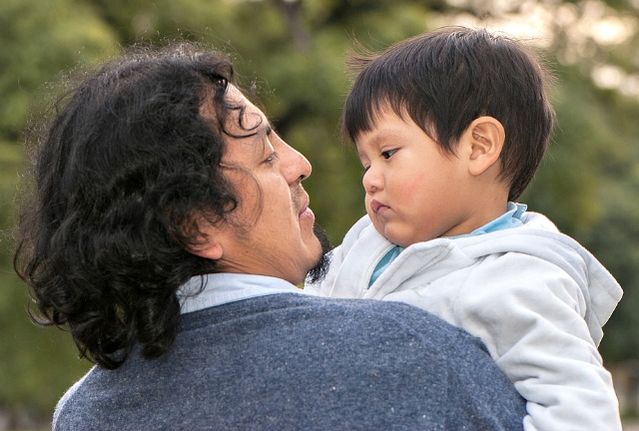Happiness
Immigration and the Pursuit of Happiness
How do we balance the needs of everyone equitably?
Posted January 9, 2017

Contributed by Amanda Habermann, M.S.
America, the “land of the free and home of the brave,” is a nation of immigrants where people have, for multiple generations, come in pursuit of greater opportunities, freedom, and better lives for themselves and for their families. The U.S. is a diverse country made up of a blend of different races and ethnicities, cultures, religions and languages, all of which have helped diversify and shape America into what it is today.
The 2016 presidential election brought to light fundamental issues facing the country—Americans have struggled to obtain jobs, finance their homes, and live their daily lives in relative safety and security. The public has feared rising national security threats due to terrorist attacks, uncontrolled illegal immigration, and substantial economic issues, including the growing national debt that is now close to $20 trillion. Many people have witnessed the country that they knew and loved disappear before their eyes.
During his campaign, President-elect Donald Trump promised to “make America great again,” a slogan seen by supporters as his promise to strengthen and unify their country. One of his major campaign promises was to stop illegal immigration and enhance border security by building an “impenetrable wall” at the southern border between Mexico and the U.S. Although his promise to “build a wall and make Mexico pay for it” wasn’t the most accepted or popular statement during his campaign, immigration policy certainly is an important issue that affects everyone who lives in the U.S., including legal and illegal immigrants.
Impact of illegal immigration on Americans and legal immigrants
From the perspective of American citizens, we are supposed to be a nation that is based on the rule of law. We have our elected officials who create and pass laws that we all must comply with to maintain order in society and to protect us from harm. The majority of Americans recognize that it is also important to protect the country’s borders, especially with the rising threat of terrorism. Furthermore, illegal immigration is deemed an injustice to American citizens who must fund education of their U.S.-born children, health care, welfare, and other social services.
As illegal immigrants do not have legal status and do not pay taxes, they do not help to fund the programs and services that benefit themselves, their children and/or their families. Individuals who enter America legally by obtaining a permanent or temporary visa (“green card”) for work, education or family reasons must prove that they have a plan to have a job or receive education, agree to follow the country’s laws and contribute to the economy by paying taxes. Is illegal immigration fair to the millions of people who do wait in line so they can be admitted to the country legally?
Changes in policy, looking at both sides
Metaphorically speaking, building a “wall” by implementing stricter border enforcement policies to reduce illegal immigration would be an important feat for America, as uncontrolled illegal immigration dampens the resources available to citizens and contributes to lower wages, higher taxes and violent crime. It is also true that allowing people to enter into any country illegally can be a threat to public safety and a danger to national security. Illegal immigration can also undermine the integrity of our nation’s laws for immigration as well as the U.S. Immigration and Customs Enforcement’s efforts to protect U.S. citizens.
At the same time, Trump’s promise to change immigration policies has plagued 61 million legal and illegal immigrants and their children living in the U.S., who are now faced with fears of deportation and uncertain futures, even those who are contributing members of society, follow the laws, vote, and pay taxes. Thousands of children, called “dreamers,” who once entered the U.S. illegally by their parents and are now adults have also been granted protections under President Obama’s Deferred Action for Childhood Arrivals (DACA) immigration program and, for these individuals, America is their home, where they went to school and where their friends and family live.
Uncertain futures and fears of the unknown
What happens to the children who are U.S. citizens by birth who have their undocumented parents removed from the country, and what are the costs of ripping families apart because of their undocumented status?
Children, who may be born in the U.S. as citizens, or may be undocumented immigrants themselves, may grow up in the U.S. and feel like they are very much a part of the American community. When they arrive in the U.S., these children, as well as their parents, must learn to acculturate, or adapt to a new country, culture, foreign language and an unfamiliar environment that may be a very different way of life than they are accustomed to at their country of origin. The process of acculturation itself can be stressful for immigrants, especially children.
About 25 percent of all children who live in the U.S. and who have at least one legal or illegal immigrant parent can also be affected by U.S. immigration policies and enforcement practices that have the potential to divide families and leave children without one or both parents, wrote Cecilia Menjívar, Ph.D., a distinguished professor, and her colleague from the University of Kansas. At the same time, children of undocumented immigrants who are left behind in a foreign country can be burdensome and costly for taxpayers.
What are the psychological effects of parental deportation on children?
Children who often live in fear that one or both of their parents may be deported can face psychological consequences as well as an uncertain future if their fears become a reality. Parents who are removed from the home may leave their children in the care of another family member or a friend, or they may be placed in the child welfare system. Along with the loss of a parent, especially a father, many families struggle financially and have difficulty making ends meet.
The separation from one or both parents, especially when they watch a parent being removed from a home, can also be a frightening and traumatizing experience for children and other family members, and the psychological trauma that stems from watching a parent arrested at home or from not knowing why their detained parent has gone missing can contribute to depression among all family members and to other complex psychological consequences in children as well, said Carola Suárez-Orozco, Ph.D., a professor in the department of applied psychology and co-director of immigration studies at New York University. Rather than just deporting parents of immigrant U.S.-born children, increasing the number of people who are granted provisional documentation under programs like DACA and Deferred Action for Parents of Americans (DAPA) or reconsidering the cap that currently limits how many people can come into the country each year might prove to be beneficial.
Updating immigration policy: A balancing act
Trump’s plan for immigration reform can certainly have consequences for millions of immigrants, including the estimated 11 million or so illegal immigrants and their children who now live in the U.S. As the immigrant population continues to grow in the U.S., it is imperative that we strike a balance between the safety and security of U.S. citizens and considering the repercussions of massive deportation of parents on children, who can be viewed as unwitting victims.
Yes, we are all immigrants in some way or another, but we must also recognize the importance of updating and reforming immigration laws, as they are an integral component of our country’s security at the border and ports of entry, providing national security so that we feel safe and protected from threats like terrorism and criminals. In doing so, however, we must equitably balance the needs and interests of everyone.




